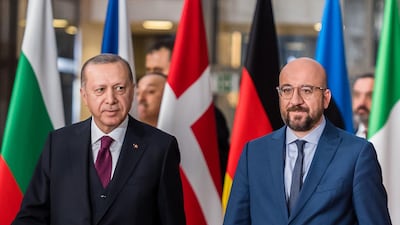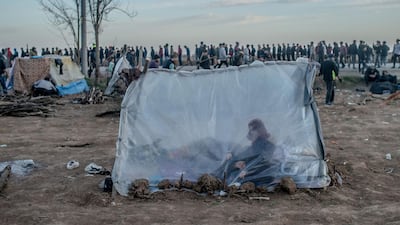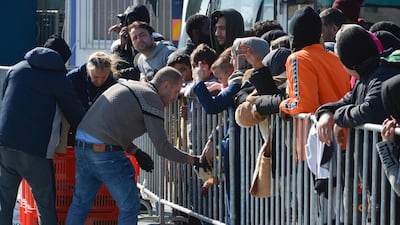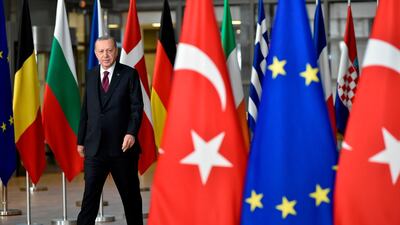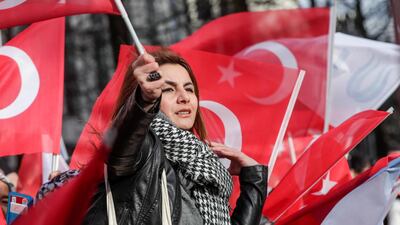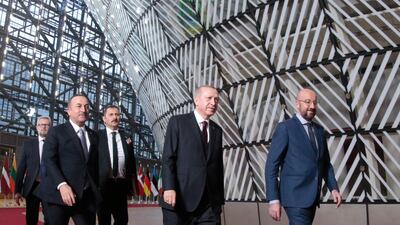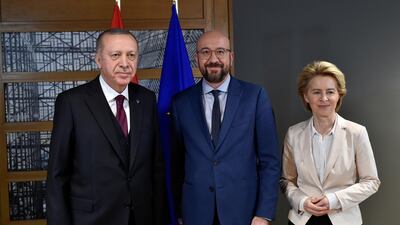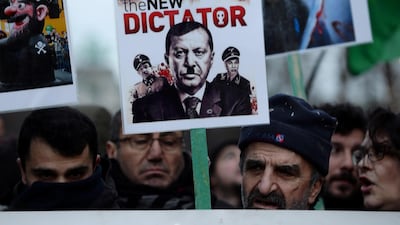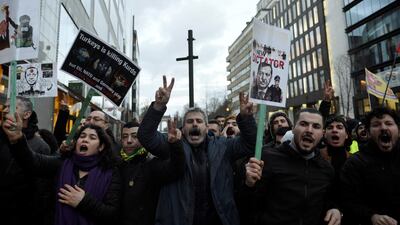Some have described the Europe Union’s relationship with Turkey as being too important to fail. However, recent developments suggest that it has indeed broken down.
Last month, Turkey abrogated its 2016 migrant agreement with Europe and actively encouraged refugees to head for the Greek border. Refused entry, thousands found themselves in no man's land. Some were on the receiving end of beatings and tear gas.
The plight of the refugees is gut-wrenching. One sympathises with those who seek better pastures in order to improve their lives and those of their families. No-one wants to see such individuals suffer, especially when they are the victims of political manipulation; Turkish authorities encouraged them to make for the border despite knowing full well that it was closed.
While the EU might wish to rethink its migration policies, Europeans also have a right to be outraged. Turkey manufactured this latest crisis in order to coerce Brussels into supporting Ankara's dangerous and foolhardy policies in Syria.
To make matters worse, Turkey's President Recep Tayyip Erdogan called Greece’s tactics akin to that of the Nazis, a spiteful exaggeration to say the least. Mr Erdogan also had the temerity to storm out of a meeting with European leaders who had gathered to find a solution. Meanwhile, Ankara moved troops to the border and Turkish forces were filmed cutting through the border fence in what can only be described as a flagrant violation of Greek sovereignty.
Yet, this is just the latest of many incidents in which Turkey has acted against European security interests.
Some of the other examples include turning a blind eye to tens of thousands of foreign fighters entering Syria through Turkey to join ISIS; the subversion of the Iranian Sanctions Act through a gold for oil scheme administered through a Turkish state-owned bank; arbitrarily arresting European and American citizens who were used as bargaining chips for the extradition of suspected members of the Gulen movement, which Turkey blames for the July 2016 attempted coup.
Turkey has also made consistent threats to revoke Nato’s use of Turkish bases and the refusal to grant access to German lawmakers wishing to visit their troops on these bases. It purchased Russian S-400 missile system despite repeated warnings of their security risks to Nato hardware, and threatened to veto plans for the defence of the Baltics before last December’s Nato summit.
Under such circumstances, Europe’s relations with Turkey cannot simply be “reset” as some have suggested.
Brussels has operated under the incorrect and antiquated assumption that it is in Ankara’s interests to work towards democratic reform, rule of law and judicial independence because doing so would lead to economic and political rewards from Europe.
This was implicit in the 2016 migration deal. In addition to Turkey receiving €6 billion in cash for hosting Syrian refugees, the Europeans also offered visa liberalisation and the modernisation of the EU-Turkey customs union as a means to kickstart Turkey’s accession process back into action. However, in order for this to happen, Brussels stressed the need for Turkey to amend its anti-terror laws that are too vague and broadly defined.
However, there was no way that Mr Erdogan was going to amend this legislation. In the period after the deal, he used these laws to do away with political enemies such as leading civil society figures and the heads of the Kurdish-oriented and liberal Peoples’ Democratic Party.
Then, following the 2016 attempted coup, Mr Erdogan accumulated unprecedented political power through a constitutional referendum that destroyed any semblance of checks and balances, and took place while the country was still in a state of emergency.
Far from a rules-based diplomatic approach to relations with Europe, Mr Erdogan and his government prefer to use instruments of power and coercion to see through their strategic interests. They consider Turkey to be a great power in its own right, which is why Turkey has not shied from engaging in a series of hostile acts against EU members.
Turkey attempted to block Cyprus from extracting its offshore gas while Ankara seeks to illegally drill off the island. Meanwhile, Turkey unilaterally drew maritime boundaries with Libya, ignoring Greece’s claims to exclusive economic zones off islands such as Crete.
Drawing on its Ottoman imperial past for inspiration, Mr Erdogan and his friends hold grandiose notions about Turkey’s role in international affairs. In their minds, Turkey will not be beholden to Europe. If anything, with millions of refugees ready to be weaponised and sent to Europe’s borders, it is Brussels that should bend the knee.
Until Turkey undergoes domestic reforms and rethinks its belligerent approach to international affairs, Brussels is best off keeping a distance. Europe should resist Turkish attempts at coercion and lend additional support to Greece and Bulgaria, two countries currently struggling to maintain their borders.
Sure, Europe must maintain strong economic relations with Turkey. But in security and strategic affairs, it should limit itself to mutually beneficial transactional security arrangements on a case-by-case basis.
Simon Waldman is an associate fellow at the Henry Jackson Society and a visiting research fellow at King's College London
